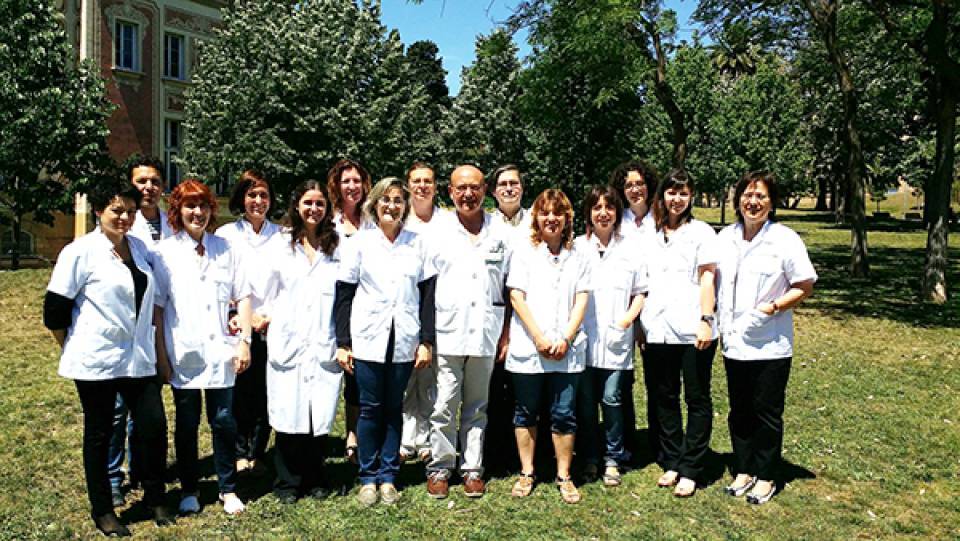The Catalan public healthcare system is the first in Europe to incorporate Severe Combined Immunodeficiency (ICG) in the neonatal screening. It will enter into force in January 2017 and this will be the 24th disease to be detected with heel blood tests in babies. This ampliation means the acquisition of new technology for the quantification of DNA fragments in the baby's blood deposited on paper and the training of qualified laboratory personnel.
Children who suffer from ICG, known as 'bubble babies' have a severe inability to develop an immune response to microorganisms in the early months and usually is diagnosed as a result of suffering from infectious complications. It has been shown that a bone marrow transplant in the early stages of life when the child has not suffered infections has greatly improved clinical outcomes than if this is done once the disease is already established.
According to a study cost-effectiveness conducted by the Quality and Evaluation Health Agency of Catalonia (AQUAS) it is estimated that the screening of this disease represents a 40% increase in the probability of survival of affected babies. It is expected that between 1 and 4 patients will be diagnosed each year. The inclusion of this new test in the screening program will cost approximately 500,000 euros per year.
The inclusion of this disease will be accompanied by the definition of a fast track care treatment circuit including the appointment of a Clinical Expertise Unit within the framework of the action plan of the Model of Care for Rare Diseases.
With this expansion, the Neonatal Screening Program of Catalonia is positioned at the forefront of the programs that exist at national and European level, both in terms of the number of diseases included, and for the numberin many babies and analyzed detection and diagnosis of disease.
Neonatal screening program in Catalonia
The Neonatal Screening Program began in Catalonia in late 1969 with the detection of phenylketonuria in babies from the province of Barcelona. In 1982 the program was expanded to all Catalonia, incorporating the detection of congenital hypothyroidism and in 2000 the detection of cystic fibrosis was also included. In 2013 there was a very important extension of the program with the acquisition of two tandem mass spectrometer (MS/MS) and the inclusion of 19 diseases related to disorders of metabolism of amino acids metabolism, organic acids and fatty acids beta oxidation. In 2015 the detection of the disease sickle cell was included with the acquisition of two capillary electrophoresis analyzers.
Currently in Catalonia PCN detects twenty-three diseases through a program circuit established between the Early Detection of Neonatal Public Health Agency of Catalonia, the Section of Inborn Errors of Metabolism in the Neonatal Screening Laboratory (Biochemistry and Molecular Genetics Department at Hospital Clínic) and Clinical Reference Units, ensuring the effectiveness of the program and the careful monitoring of babies.

